Top Universities in the World Offering Tuition-Free Education
Tuition-Free Education: Is It Possible In ToDay’s World ? Read This Article To Find Out

No doubt, education in some countries, is a basic human right but do you know that most countries in the world perceive education to be an adventure that is profitable to the society at large? Furthermore, most advanced countries go the extra mile by offering admission without tuition fees to international students because they consider them to be an important part of the higher education process.
In this write up, we made a compilation of a list of the topmost 10 Universities that allow international students admission without any tuition fees in the year of 2020/2021.
You may want to ask- what are the criteria for our selection? We made our selections not just based on universities around the world offering tuition-free education but also ranked the top 10 universities in the world according to the prestigious QS World University Rankings.
*** We want you to note that the information provided here is subject to change at any given time. These schools may in the future, decide to start accepting tuition fees from international students. ***
10. University of Bergen, Norway

Description: The University of Bergen is Norway’s metropolitan university, having most of its surroundings focused on just two areas. One of the premises is the university’s health campus – Årstadvollen where dentistry, medicine, and health care are located close to the Haukeland and Haraldsplass university clinics. While students of other subjects such as natural and social sciences, psychology, the arts, and law are taught at Nygårdshøyden which is a combination of houses, stores, and seats of learning. The University is carefully structured to fit into the geographical, historical, and cultural framework of the town.
Tuition Fees: The University is a public institution and as a result of this, do not charge tuition fees. This no tuition fee policy is applicable to both Norwegian and international students. The only fee you are expected to pay to the Student Welfare Organisation (SiB), is the semester fee which is presently NOK 590. Moreover, students in exchange programs are not required to pay the semester fee. These and many more are why the school is attractive for graduate study. Interestingly, out of three graduating doctors, one is certainly from outside Norway.
Cost of Living: Ordinarily, living expenses is very high but irrespective of this, you can still manage pretty well on a student budget. An average university student’s budget is roughly NOK 9785 monthly (2014). It should be enough to take care of most monthly expenses like housing, food, clothing, study materials, books, transport, and social activities.
Scholarships: The University of Bergen does not give scholarship offers.
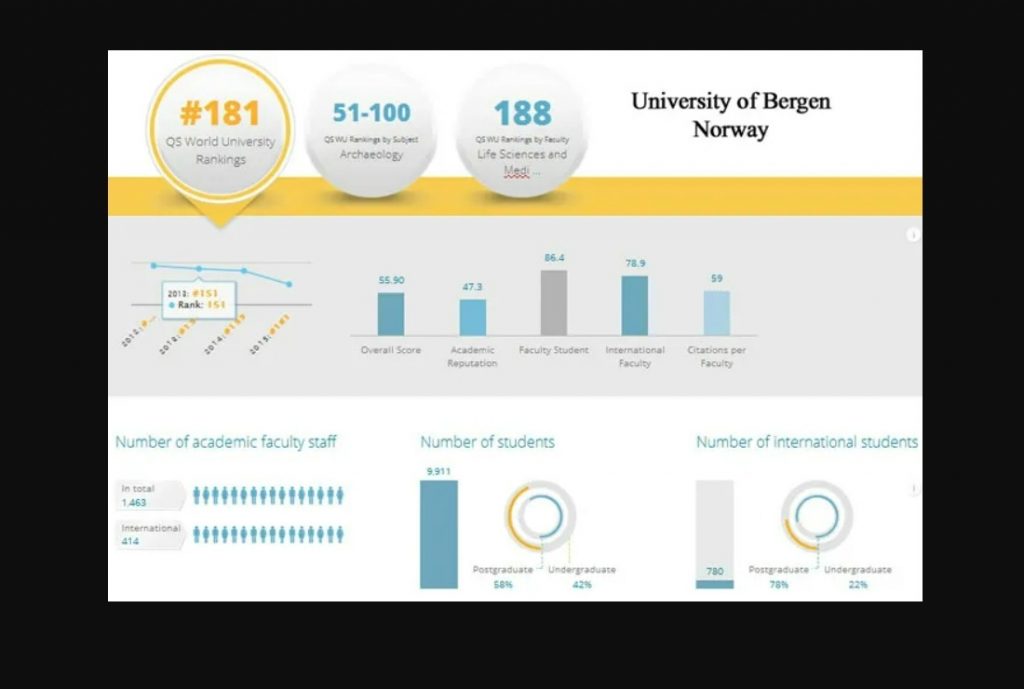
9. RWTH Aachen University, Germany

Description: Talk about the largest university of technology in Germany and one of the famous in Europe, then you must be referring to RWTH Aachen Universit. Yearly, the number of international students and scientists who study in the university just to leverage its high-quality courses and outstanding facilities which are globally recognized increases.
RWTH Aachen University is gradually becoming an integrated, interdisciplinary technical hub. The state of art facilities housing the natural sciences, medicine, arts, social sciences, economics, etc, the presence of 260 institutes in 9 faculties, including almost 8,000 international students from more than 120 countries all hugely contribute to the university’s teaching and research profile thereby making it one of the leading European scientific and research institute.
Tuition Fees: Tuition fees at RWTH Aachen University are free and this applies to international students too. However, all students belong to a student body where they contribute €239.75 as a social contribution semester fee.
Scholarships: Scholarships are available.
Living Expenses: The cost of living for a student of RWTH Aachen University is roughly € 700 a month ( which is equal € 8,400 per year)
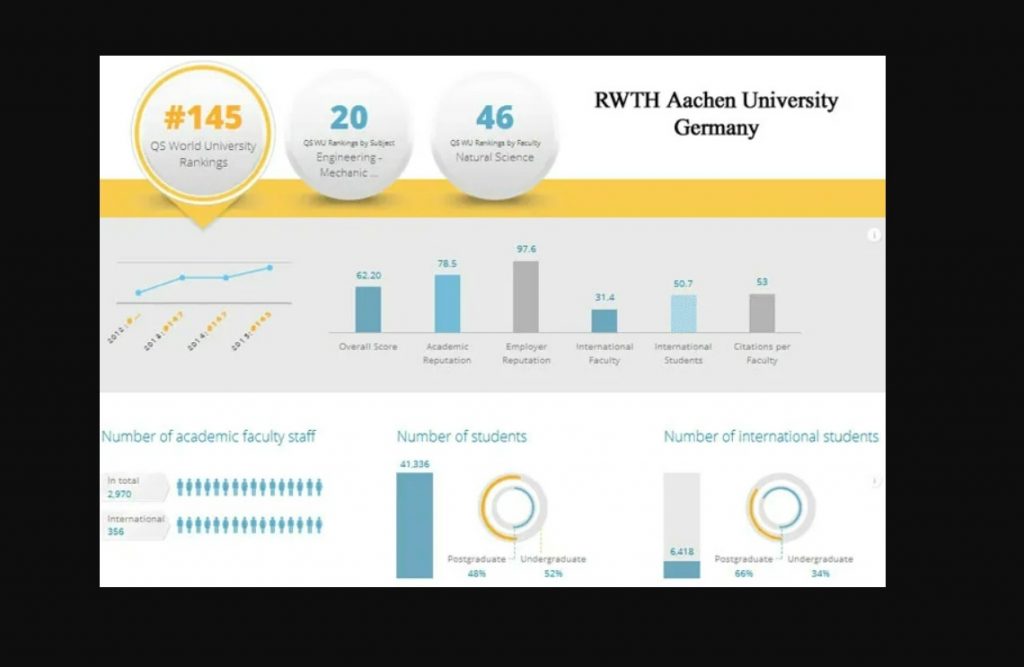
8. Aalto University, Finland
Description: Aalto University can be best described as a school on a mission which is to build a larger and stronger Finland. The school is a meeting point where science and arts meet technology and business. The University was established in 2010 after the merging of three notable universities in the Helsinki metropolitan area in Finland. Students are given maximum support so as to excel both in their studies and their prospective careers. Aalto University is also a practical-based school and as a result of this, many of them already have vast work experience by the time they graduate. They offer more than 90-degree programs both at bachelor, master, and doctoral levels respectively which leads to a large number of students obtaining degrees in the fields of technology, business, art, design, and architecture.

Tuition Fees: In 2017, they began charging tuition fees but even at that, they are reasonably low. It is possible to obtain a graduate degree for as low as $600.
Scholarships: Aalto University has scholarship openings for international students who wish to be admitted in 2020/2021 for their Master’s program.
Cost of Living: Students are expected to fend for themselves (app. EUR 800 monthly)
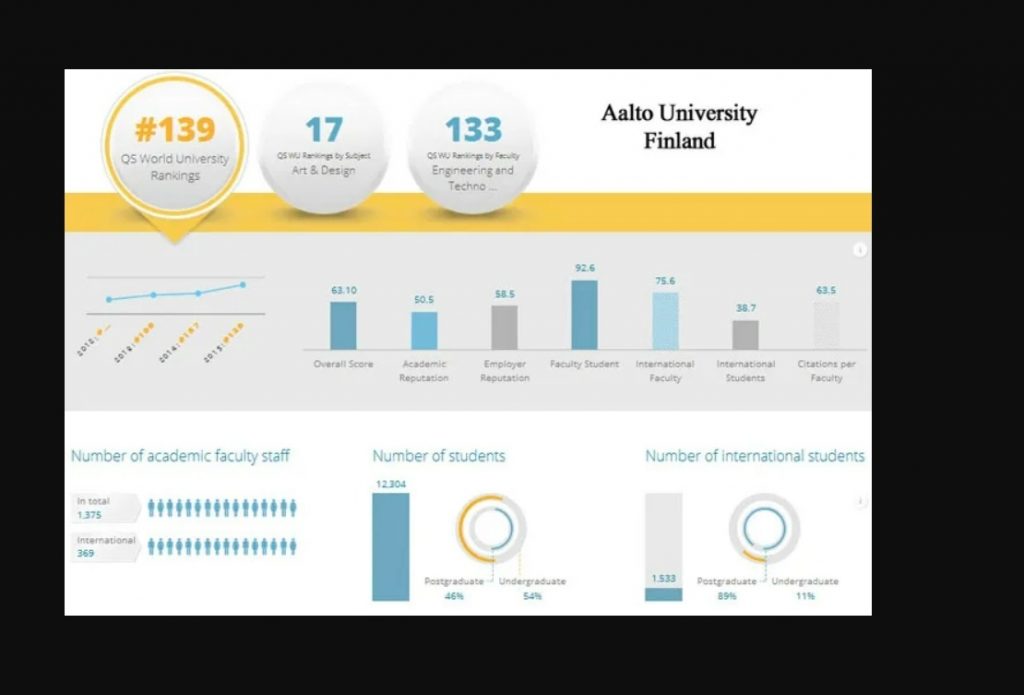
7. University of Oslo, Norway

Diversity: This institution is Norway’s biggest and oldest institution of higher education. It was established when Norway was still ruled by Danish in 1811. Furthermore, the school has about 30,000 students and 4,600 employees. They are also winners of Four Nobel Prize winners which shows the quality of the research at the University.
Tuition Fees: The university is funded by the public since it’s a state university. Therefore, they do not pay tuition fees. Nevertheless, most students must pay a token (NOK 550, approx. 70 euro) which makes them eligible to receive the services of the Foundation for Student Life (SiO).
Scholarships: There are no available scholarships for students on bachelor’s degree programs but the University gives scholarships for Ph.D./Postdoctoral research programs. They also offer scholarships for Masters under programs like Erasmus, Nordplus, and the EEA Grants/Norway Grants program.
Cost of Living: For the summer, a minimum of NOK 3000/USD 625 will do. Excluding books, course supplies, and personal expenses.
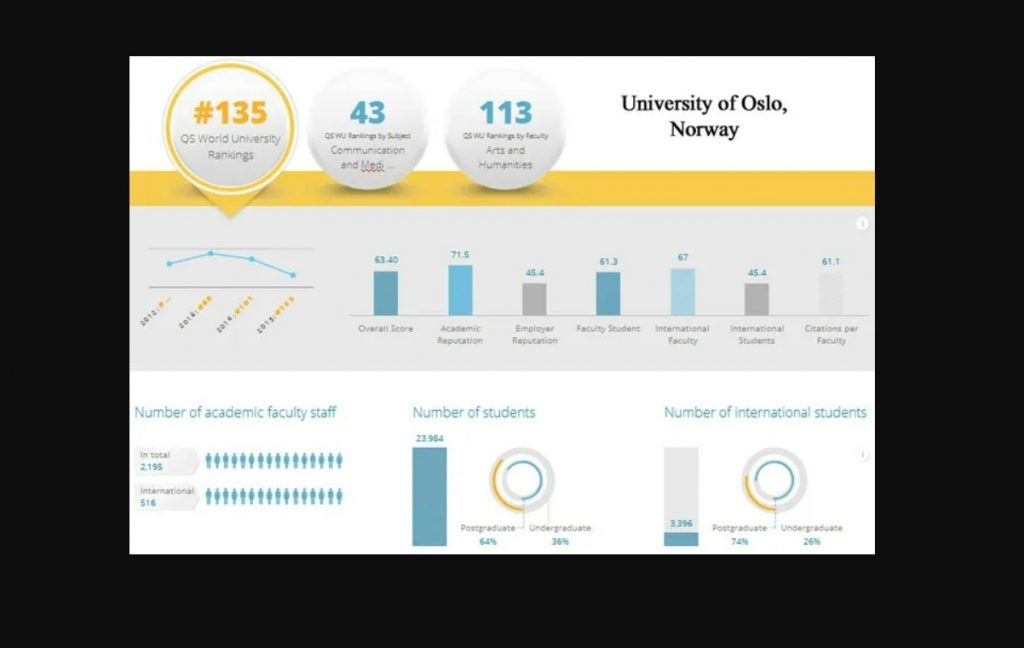
6.Humboldt-Universität zu Berlin, Germany

Description: Being established in Berlin in 1810, the title “Mother of all modern universities” was given to Humboldt Universität Zu Berlin by the reform ideas of the first vice-chancellor of the university-Johann Gottlieb Fichte (a philosopher) and Friedrich Schleiermacher, a theologian and philosopher.
Tuition Fees: The only fees to be paid is in the summer semester which is a total of € 307.09 and € 257.09 for exchange students. However, whether you are a German and EU student or an international student at Humboldt Universität Zu Berlin, you don’t have to pay tuition fees.
Scholarships: HU through several organizations and philanthropic individuals offer a number of scholarships for international students.
Cost of Living: Based on the maximum BaföG-grant of € 670. given to German students, the living expenses amounts to about € 600-700 per month. Ordinarily, you must provide proof of sufficient financial resources when applying for a visa at a German diplomatic representation abroad or for a residence permit at the Foreigners’ Registration Office (Ausländerbehörde) in Berlin.
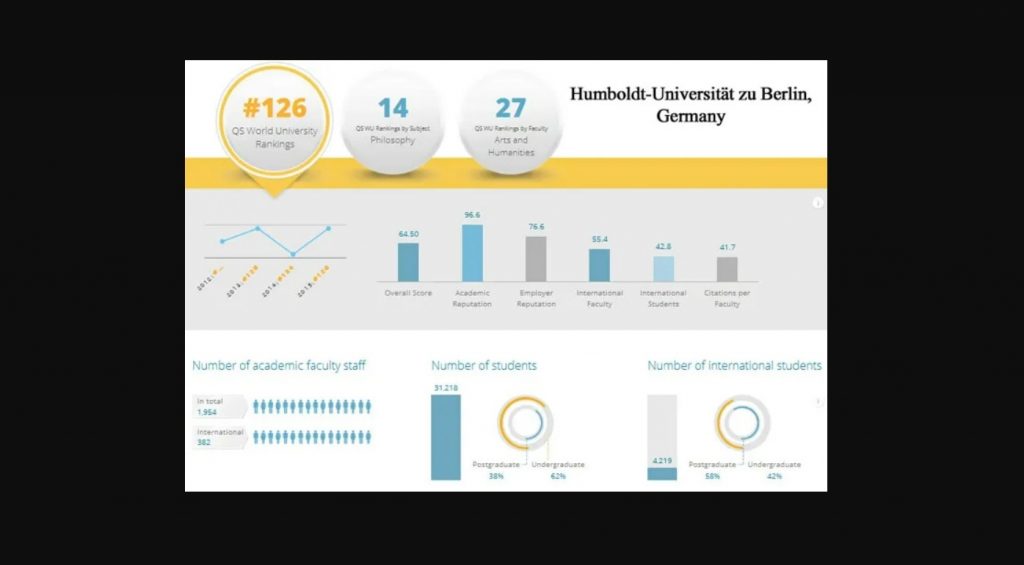
5. Freie Universitaet Berlin, Germany

Description: The major aim of educating outstanding young academics and scientists in Freie Universitaet is to secure several opportunities for disciplinary and interdisciplinary networking with young academics as well as seasoned scholars and this lies in the fact that they avail their students the freedom for the pursuit of ideas and mixing personal liberty with strong individual support from academic advisors. The school encourages graduate students to go about their studies with autonomy and an independent mindset.
Tuition Fees: Students are only expected to pay few semester charges except for some graduate or postgraduate programs.
Scholarships: Both international undergraduate and graduate are awarded scholarships in Freie Universität Berlin.
Cost of Living: Your living costs hugely lies on your spending habit but as a student, you should spend a minimum of 600 to 700 Euro (rental fees, grocery, leisure time, etc. Before you can get an entry visa or a residence permit for the purpose of studies, you have to show that you have the said monthly amount independent of any job at your disposal.
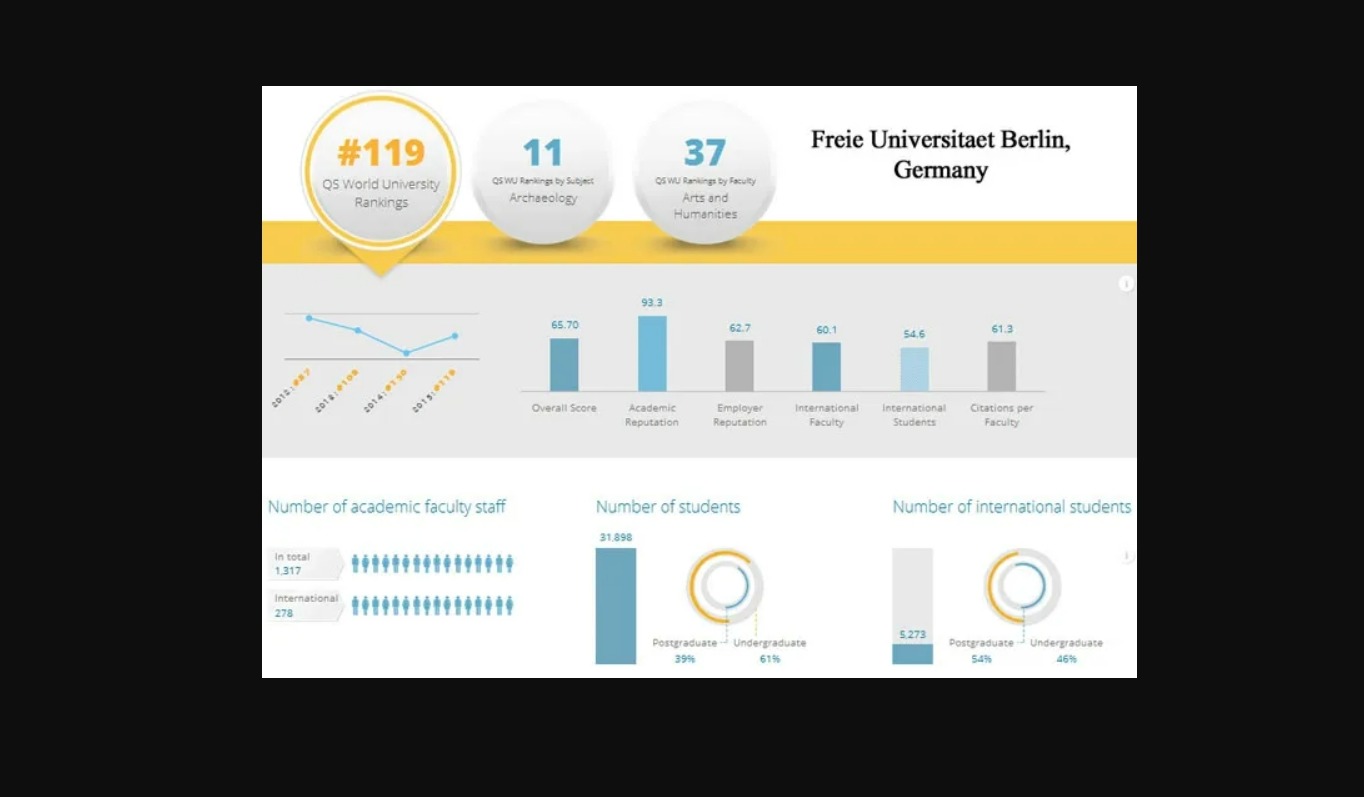
4. University of Helsinki, Finland

Description: The University of Helsinki focuses on high-profiled scientific research which is the foundation of the teaching offered by the University. The University system supports the growth of society, business, and industry. The school has also participated in most of the researches that were eventually elected by international scientific panels due to the results produced.
Tuition Fees: On August 1st, 2017, an annual tuition fee was introduced in Finland for Bachelor’s and Master’s programs.Non-EU/EEA citizens who are yet to attain permanent residence status are included in these fees.
Scholarships: The school is set to award 50 scholarships to qualified degree students who are accepted to study in an International Master’s Degree Programme.
Cost of Living: All accommodation and living expenses are to be sorted out by students. The living expenses of a single student should cost about 700 to 1000 euro monthly and of course, this depends on the spending habit. Nevertheless, as a student, you are entitled to several benefits which aid in making life easier.
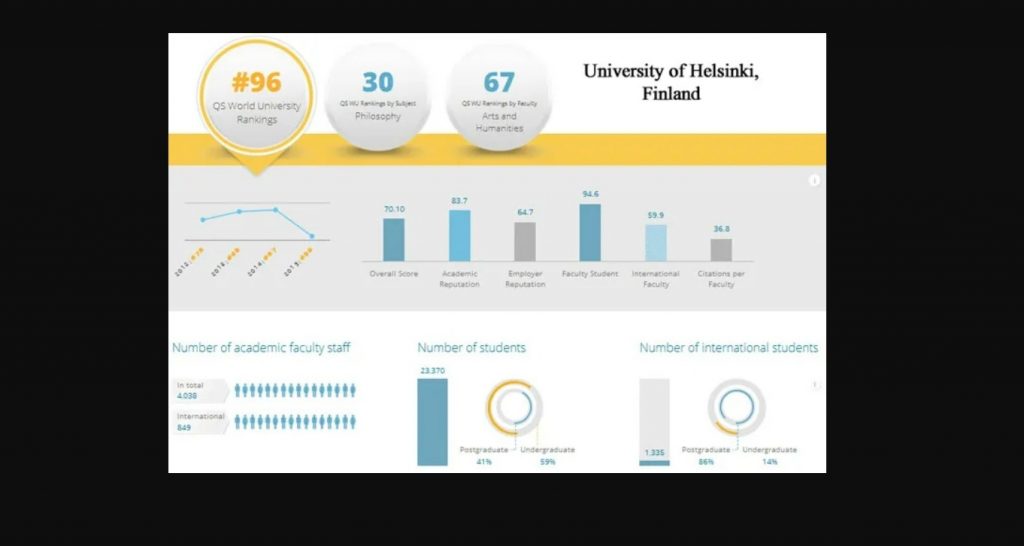
3. Ludwig-Maximilians-Universität München, Germany
Description: With more than 500 years of tradition, Ludwig-Maximilian-Universität (LMU) München has emerged as one of Europe’s leading research universities. In a competition launched by the German government within the excellence initiative in order to encourage top-level university research, the school has been chosen as a “university of excellence” This was made possible because they offer a vast spectrum of all areas of knowledge, ranging from the humanities and cultural sciences, law, economics, and social studies, to medicine and the sciences.

Tuition Fees: Students are not expected to pay tuition fees for most programs. Nevertheless, all students are expected to pay €114,50 for student services (€52) and the usual semester fee (€62,50). Also, you need to pay tuition fees for summer and Master’s programs.
Scholarships: Foreign students have access to limited scholarships and funding opportunities within the State of Bavaria and Germany.
Cost of Living: Below are a basic list of what you should budget for monthly living expenses in Munich:
Apartments/ utilities in private housing: €350–€600
Apartments/ utilities in university housing: €300, or €370
Health insurance: €80
Food: €200–€250
Mobile phone: €15–€30
Public transportation: €33
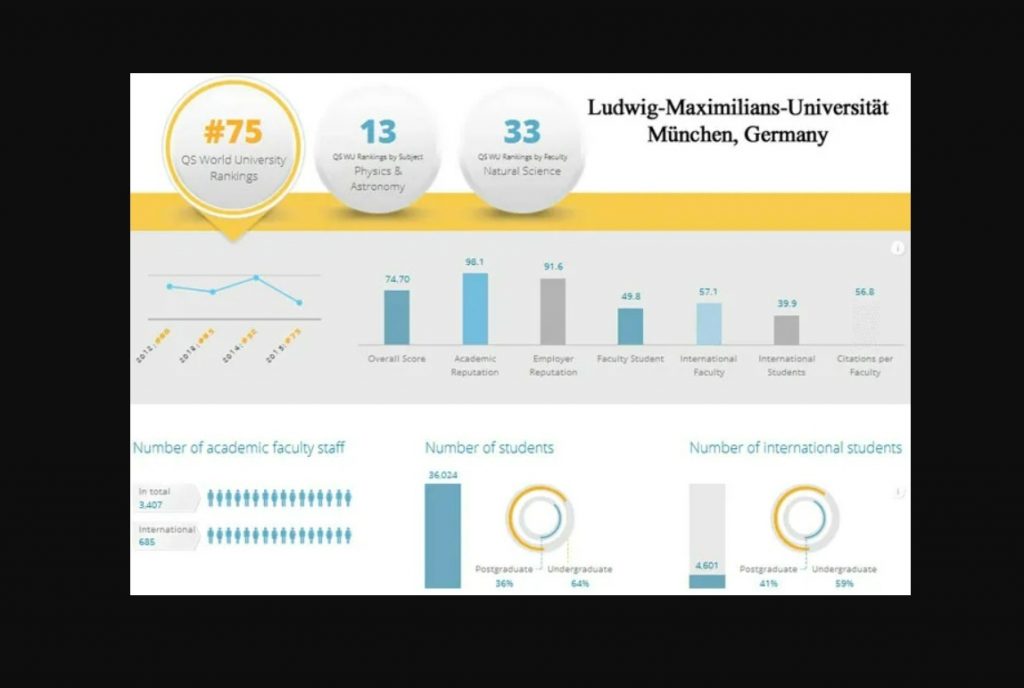
2. Heidelberg University, Germany

Description: In 1386, the oldest university in Germany and one of the strongest research institutions in Europe was established. This institution concentrates on research-related teachings and well-organized doctoral training to educate students. Heidelberg University can easily come off as all-encompassing, offering a wide range of disciplines, ranging from humanities, social sciences to law alongside the natural and life sciences, including medicine.
Tuition Fees: There are no tuition fees to be paid both at undergraduate, Masters, and Ph.D. levels. Nonetheless, a continuing-education master’s program may require tuition fees.
Scholarships: Few scholarships are available through the German Academic Exchange Service (Deutscher Akademischer Aus-tauschdienst – DAAD) and other institutions for students who are highly qualified.
Living Expenses: If you are schooling at Heidelberg University, you will be needing about €670 monthly.
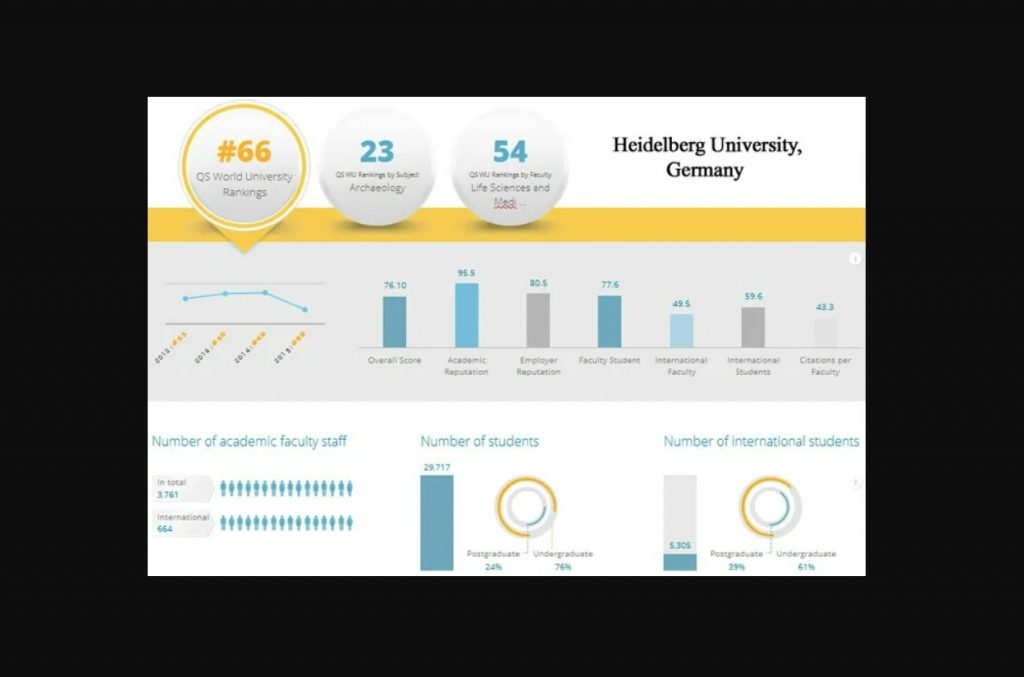
1. Technical University of Munich, Germany

Description: Aside from the wide range of programs they offer (160 courses of study), there is something spectacular about TUM. It is this- the ability to draw up agreements with above 20 universities and not just that, they have also maintained partnerships with about 170 universities all over the world. The course program contains about 160 courses of study, 98% with bachelor and master degrees. Currently, TUM houses thirteen faculties with about 37,000 students (about 20 percent international students), 475 professors, and approximately 10,000 members of staff, academic and non-academic.
No Tuition Fees: You are not expected to pay tuition fees at TUM. You are only expected to pay semester fees which amount is about € 114.50 and this covers Student Union Fee and Semester ticket for public transportation.
Scholarships: A good number of foundations award grants to students at all levels of study and interestingly, eligibility is not restricted to students with excellent grades.
Cost of Living: Truthfully, living in Munich is moderately expensive. Going by existing calculations, you will be needing around € 830 monthly (including rent but leisure time activities are not included). Notwithstanding, when applying for your visa, you will be required to present proof that you will have € 659 monthly at your disposal.
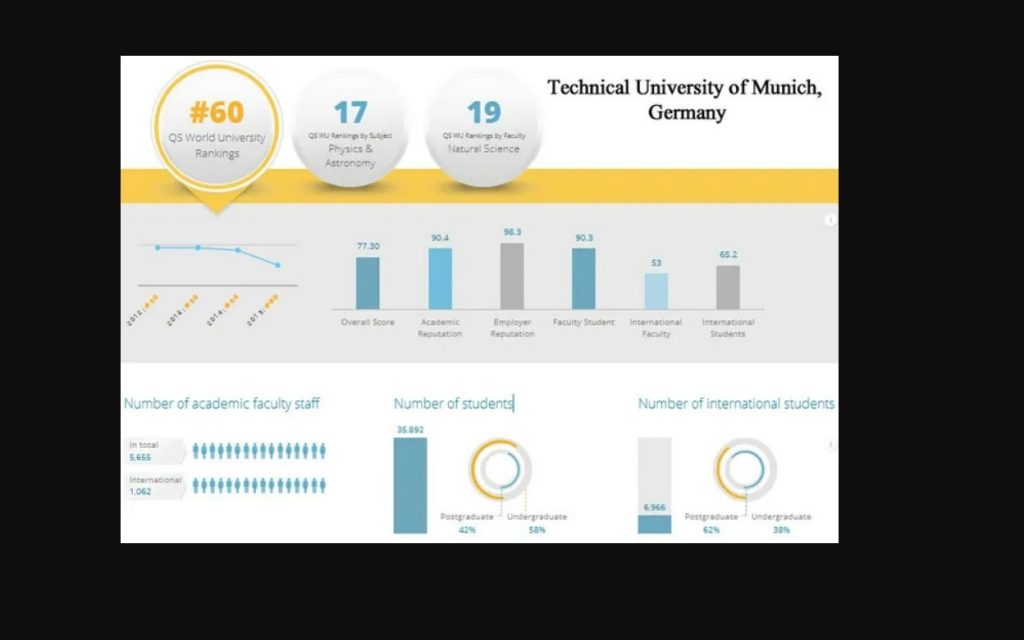
Thanks for reading and please reach out to us via the contact feature if you feel the need to add more universities.
Tags: Tuition-Free Education Tuition-Free Education Tuition-Free Education Tuition-Free Education Tuition-Free Education Tuition-Free Education Tuition-Free Education Tuition-Free Education Tuition-Free Education Tuition-Free Education Tuition-Free Education Tuition-Free Education Tuition-Free Education Tuition-Free Education Tuition-Free Education Tuition-Free Education Tuition-Free Education Tuition-Free Education Tuition-Free Education Tuition-Free Education Tuition-Free Education Tuition-Free Education Tuition-Free Education Tuition-Free Education Tuition-Free Education Tuition-Free Education Tuition-Free Education
